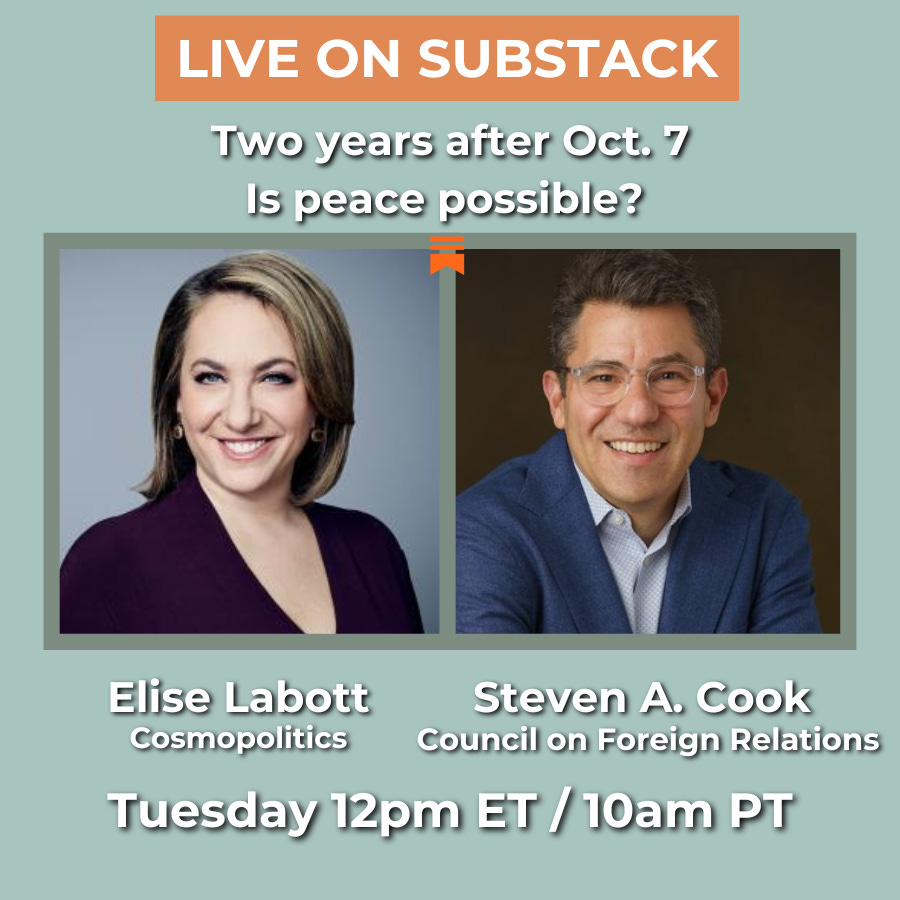The lost plot of October 7
Two years in, let's remember how we got here
TODAY I will be holding a special Substack Live conversation with Steven A. Cook, senior fellow at the Council on Foreign Relations, columnist at Foreign Policy and the author of The End of AmbitionAmerica’s Past, Present, and Future in the Middle East. If you caught our last chat, you know Steven’s signature blend of clear-headed analysis is exactly what we need o…




